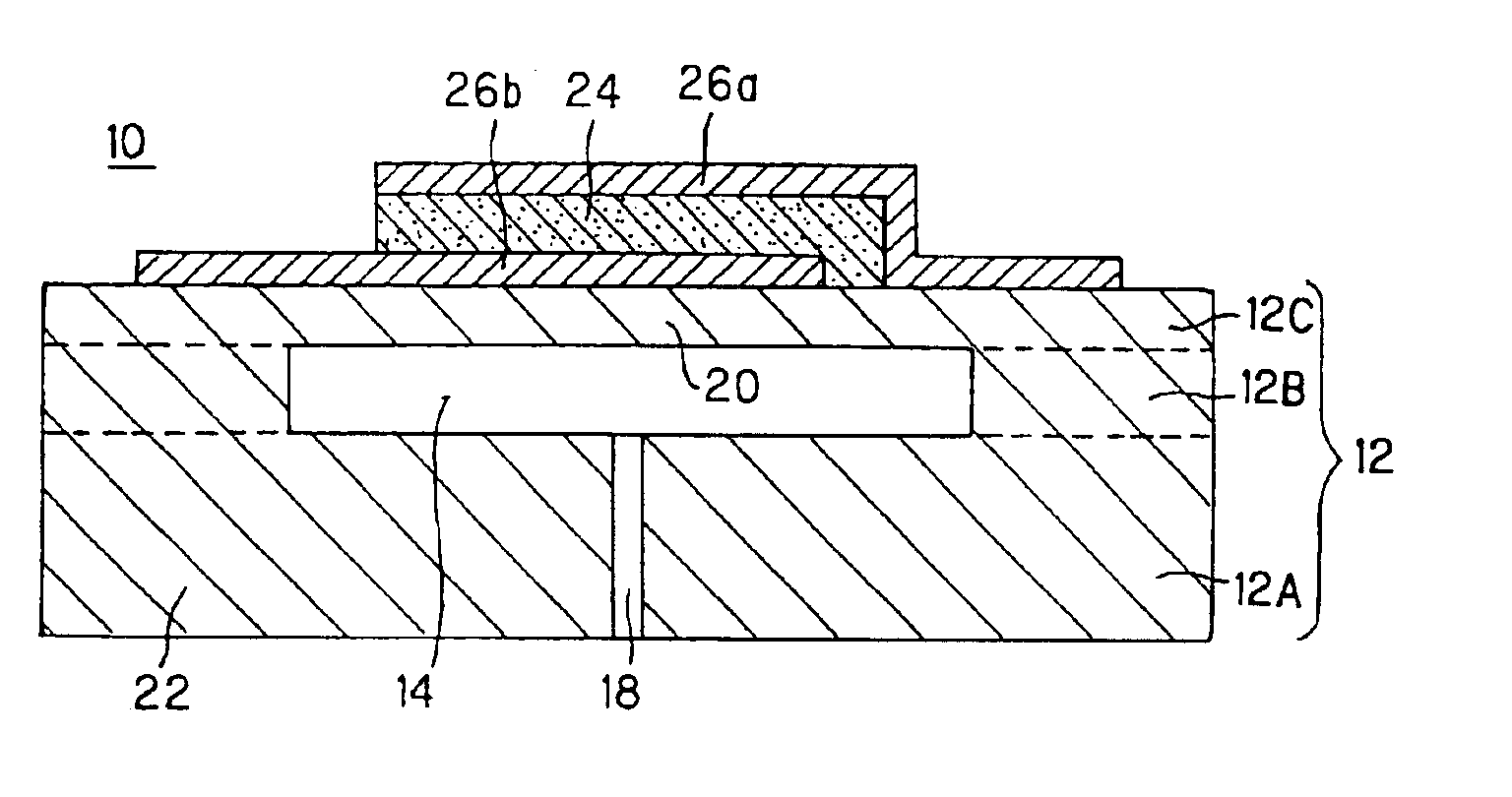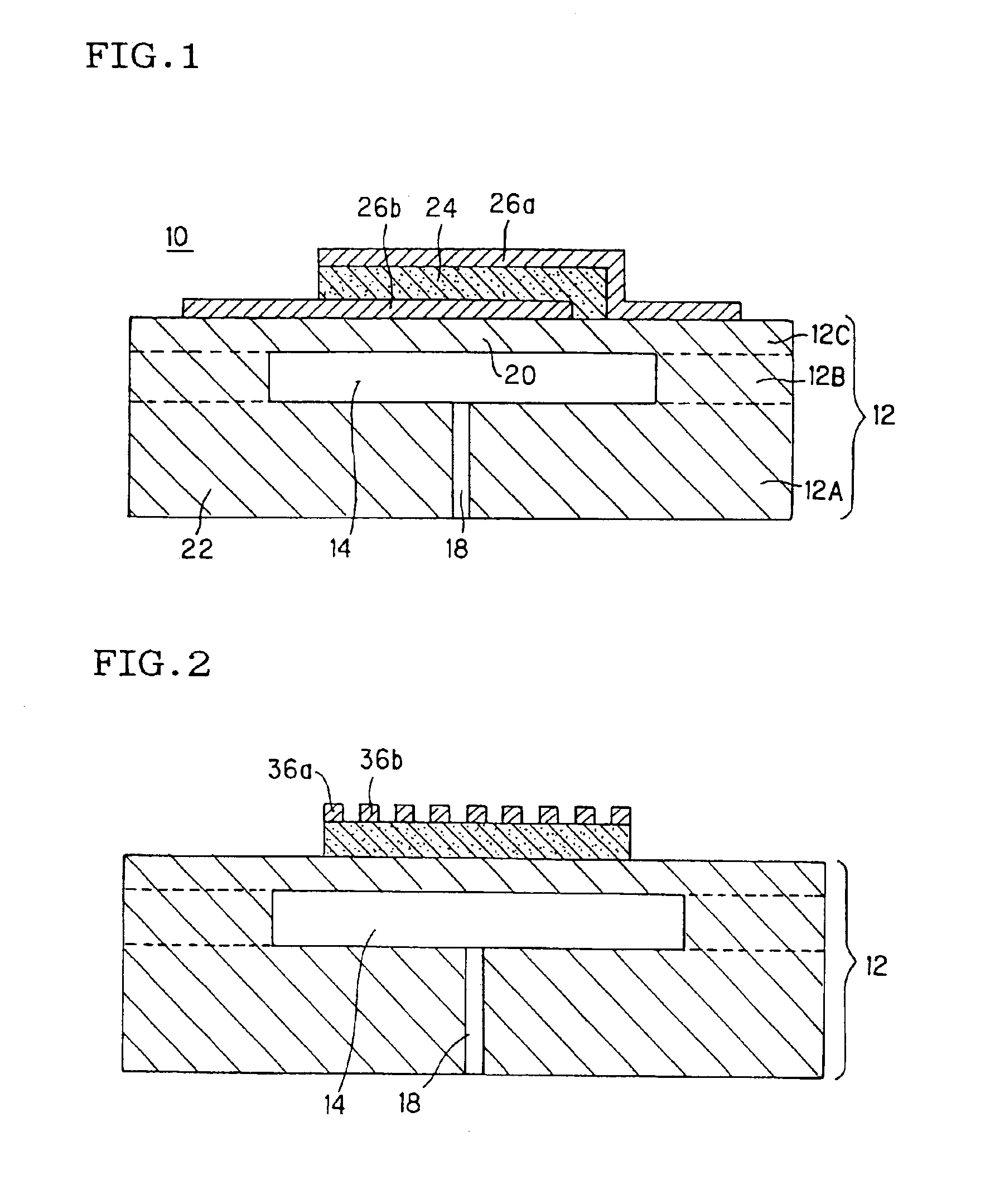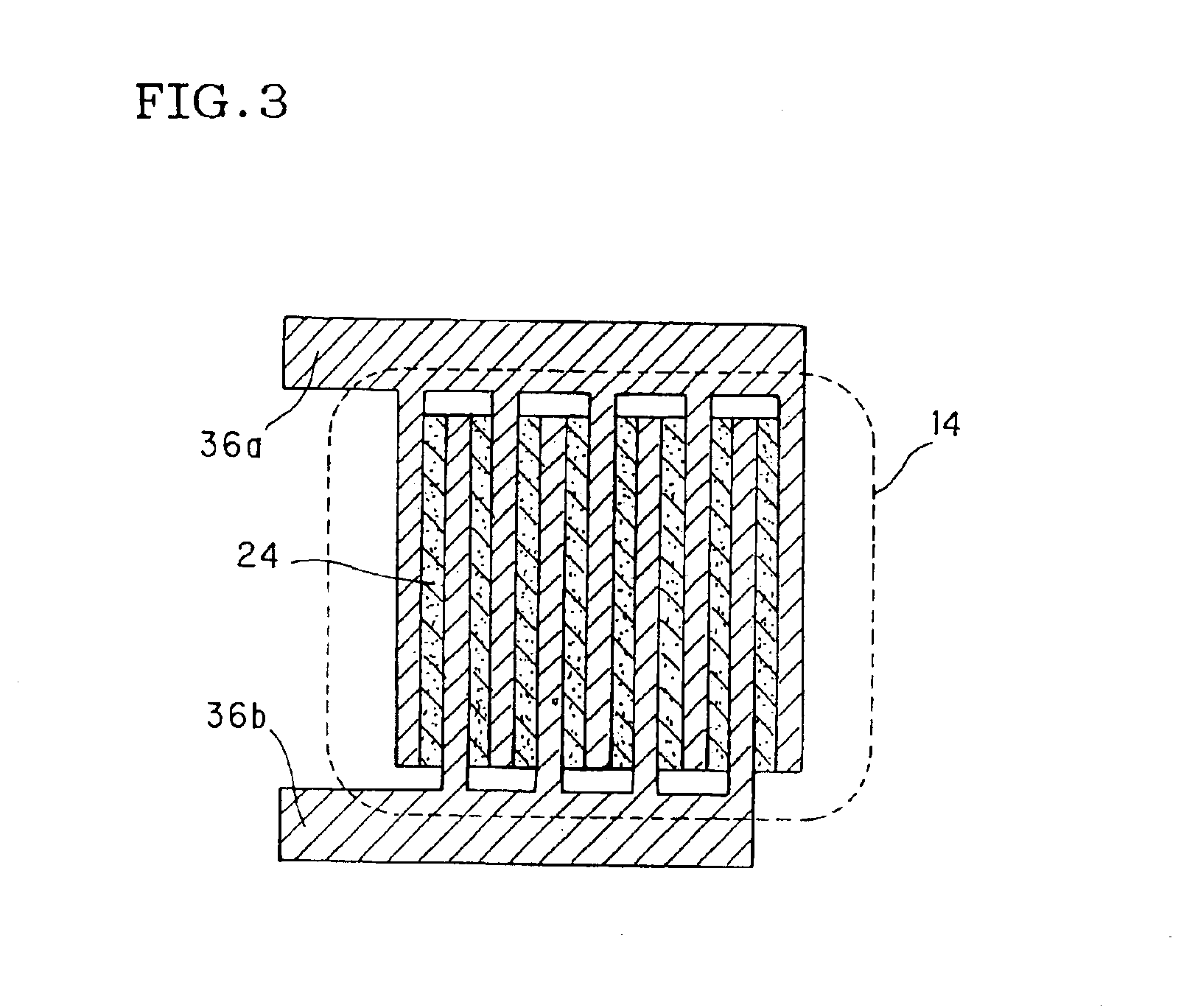Piezoelectric/electrostrictive device
a piezoelectric/electrostrictive and electrode technology, applied in the field of piezoelectric/electrostrictive devices, can solve the problems of no investigation, and low density of piezoelectric/electrostrictive layers, and achieves superior transmission of oscillation and large displacement
- Summary
- Abstract
- Description
- Claims
- Application Information
AI Technical Summary
Benefits of technology
Problems solved by technology
Method used
Image
Examples
example 1
[0089]A platinum-made lower electrode [dimension: 1.2 mm×0.8 mm×3 μm (thickness)] was formed, by screen printing, on a substrate whose diaphragm portion and fixing portion were, both made of Y2O3-stabilized ZrO2 [dimension of diaphragm portion: 1.6 mm×1.1 mm×10 μm (thickness)]. A heat treatment at a temperature of 1300° C. for 2 hours was carried out to integrate the electrode with the substrate.
[0090]Thereon was laminated, by screen printing, a piezoelectric material [dimension: 1.3 mm×0.9 mm×13 μm (thickness)] made of a piezoelectric ceramic composition containing (1) 99.9% by mass of (Pb0.999La0.001)(Mg1 / 3Nb2 / 3)0.375Ti0.375Zr0.250O3(wherein part of Pb was substituted with 0.1 mole % of La) (average particle diameter: 0.49 μm, maximum particle diameter: 1.8 μm) and (2) 0.100% by mass of CeO2.
[0091]Then, an atmosphere-controlling material having the same composition as the piezoelectric material was placed in a vessel, and the laminate of the piezoelectric material on the electrode...
examples 6 to 10
(2) Examples 6 to 10
[0099]As shown in Table 1, the piezoelectric devices of Examples 6 to 10 showed large flexural displacements of 1.82 μm or more, respectively. Those devices were made of a ceramic composition obtained by adding Ce in an amount of 0.100% by mass (in terms of CeO2) to a PMN-PZT system composition in which Pb was substituted with Sr by 1.0 to 13.0 mole %. The piezoelectric devices of Examples 7 to 9 showed particularly large flexural displacements of 1.98 μm or more, and they were made of a ceramic composition obtained by adding Ce in an amount of 0.100% by mass (in terms of CeO2) to a PMN-PZT system composition in which Pb was substituted with La by 3 to 10.0 mole %. The largest flexural displacement of 2.13 μm was obtained in the piezoelectric device of Example 8 made of a ceramic composition obtained by adding Ce in an amount of 0.100% by mass (in terms of CeO2) to a PMN-PZT system composition in which Pb was substituted with La by 6.0 mole %.
examples 11 to 15
(3) Examples 11 to 15 and Comparative Examples 2 to 4
[0100]As shown in Table 1, the piezoelectric devices of Comparative Examples 2 and 3 showed very low flexural displacements of at 1.69 μm or less. Those devices were made of a ceramic composition obtained by adding Ce in an amount of 0.005% by mass or less (in terms of CeO2) to a PMN-PZT system composition in which part of Pb was substituted with La and Sr, and also in the flexural displacement of Comparative Example 4 using a ceramic composition obtained by adding Ce in an amount of 1.000% by mass (in terms of CeO2) to the same similar PMN-PZT system composition.
[0101]In contrast, the piezoelectric devices of Examples 11 to 15 showed large flexural displacements of 1.92 μm or more. Those devices were made of a ceramic composition obtained by adding Ce in an amount of 0.010 to 0.500% by mass (in terms of CeO2) to a PMN-PZT system composition in which part of Pb was substituted with La and Sr. The piezoelectric devices of Examples ...
PUM
| Property | Measurement | Unit |
|---|---|---|
| thickness | aaaaa | aaaaa |
| thickness | aaaaa | aaaaa |
| thickness | aaaaa | aaaaa |
Abstract
Description
Claims
Application Information
 Login to view more
Login to view more - R&D Engineer
- R&D Manager
- IP Professional
- Industry Leading Data Capabilities
- Powerful AI technology
- Patent DNA Extraction
Browse by: Latest US Patents, China's latest patents, Technical Efficacy Thesaurus, Application Domain, Technology Topic.
© 2024 PatSnap. All rights reserved.Legal|Privacy policy|Modern Slavery Act Transparency Statement|Sitemap



